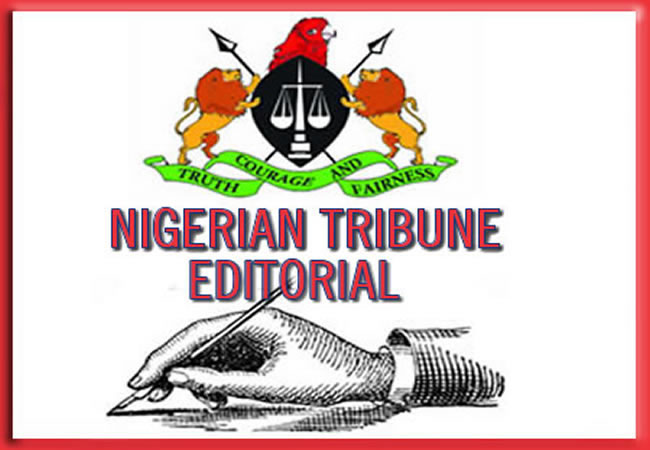RECENTLY, A BBC Eye Investigation unmasked how an Indian pharmaceutical company, Aveo Pharmaceuticals, engaged in illegal manufacture and export of highly addictive opioids to West Africa and thus fueled a growing public health crisis. According to the report, the Mumbai-based company produced unlicensed pills containing a dangerous combination of tapentadol, a potent opioid, and carisoprodol, a banned muscle relaxant. These drugs, the BBC found, were marketed under various brand names, and were being widely sold on the streets of Ghana, Nigeria, and Côte d’Ivoire, despite their classification as illegal drugs. As part of the investigation, a BBC undercover operative posed as a Nigerian businessman, infiltrated Aveo’s factory, and secretly filmed a company director, Vinod Sharma, openly promoting the dangerous pills. Sharma actually acknowledged the harmful effects of the drugs, saying, “This is very harmful for their health—but nowadays, this is business.” The activities violate Indian law, which “prohibits the manufacture and export of unlicensed drugs unless they meet the importing country’s regulations.” The Indian drug regulator, the Central Drugs Standard Control Organisation (CDSCO), was quoted as saying that the government was committed to preventing illegal pharmaceutical exports and had pledged to take immediate action against any companies involved in malpractice.
In Nigeria, outfits like the National Drug Law Enforcement Agency (NDLEA) and the National Agency for Food and Drug Administration and Control (NAFDAC), together with professional organisations such as the Pharmaceutical Council of Nigeria (PCN) have often condemned the importation, sale and use of fake and banned substances given their corrosive effects on human health. However, if the BBC report is to be believed, such drugs are still being openly sold on the streets of Nigeria and neighbouring countries, which raises the all-important question about how those drugs beat border checks. In Nigeria, as in Ghana, Nigeria, and Côte d’Ivoire, security agencies are everywhere and are supposed to work closely with the regulatory agencies to ensure that fake, substandard and counterfeit drugs, as well as banned substances, are kept at bay. It is, therefore, disheartening to find that foreign criminal outfits dubbed pharmaceutical companies and their local collaborators have been having a swell time killing people and afflicting them with various diseases through fake drugs.
According to the pharmaceutical giant, Pfizer, “Fake drugs are manufactured and packaged to look like legitimate brand-name medications but often contain little to none of the active ingredients listed on the label. Fake drugs in the illicit supply chain pose a serious potential risk to unsuspecting patients. In some cases, these fake drugs simply don’t provide the needed therapeutic value as they may lack the active ingredients. In the worst case, some contain dangerous products.” Citing Interpol, the company says that “some fake medicines have been found to contain mercury, arsenic, rat poison, or cement.” And, worse still, as Pfizer notes: “Consuming counterfeit drugs can have serious consequences for individuals, communities, and overall global public health. According to the World Health Organization (WHO), one of every 10 medicines fails in low- and middle-income countries because they are substandard or falsified. Not only does this erode public trust in healthcare, but it also leads to preventable deaths. For example, between 72,430 and 169,271 children have died of pneumonia each year after taking counterfeit antibiotics. Some counterfeit drugs contain real antibiotics or antivirals but at a much lower dosage than listed on the product label. It’s not enough to fully treat the disease, and it can give pathogens a chance to mutate and spread, which contributes to the growing public health threat of antimicrobial-resistant infections. Fake drugs might also contain medicines that appear where they aren’t supposed to be, which can lead to overdoses and deaths.”
Why couldn’t the regulatory agencies track those items before they got into circulation? It certainly takes two to tango. It is a fact that multinational companies like the ones referenced in the BBC report have ruined so many lives, often irreparably. A study by the UN Office on Drugs and Crime (UNODC) reveals that up to 500,000 people die annually from counterfeit drugs in sub-Saharan Africa. Specifically, 267,000 persons die annually from substandard malaria drugs, while 169,000 deaths are recorded from fake antibiotics used to treat pneumonia in children. Between $12 million and $44.7 million is said to be expended each year treating people who have used counterfeit or substandard malaria drugs. Besides, because those killer drugs are cheaper than real medicine, the foreign companies manufacturing fake drugs leave local pharmaceutical companies in economic limbo. It is distressing that in the current case at least, the security and regulatory agencies were unable to halt this economic sabotage. The BBC deserves huge commendations for its painstaking investigation.
To be sure, there is a need to interrogate the effectiveness or otherwise of the security architecture in the country, which was unable to halt the invasion of the country with fake drugs at inception or early enough, before the country started experiencing the dastardly effects. Effective governance has to do with, and often rests on, adequate security cover. The government has to up its game and save the country from being a dumping ground for dangerous drugs.
READ ALSO: Customs seize 1,024 fake drugs worth N869m from India
WATCH TOP VIDEOS FROM NIGERIAN TRIBUNE TV
- Relationship Hangout: Public vs Private Proposals – Which Truly Wins in Love?
- “No” Is a Complete Sentence: Why You Should Stop Feeling Guilty
- Relationship Hangout: Friendship Talk 2025 – How to Be a Good Friend & Big Questions on Friendship
- Police Overpower Armed Robbers in Ibadan After Fierce Struggle






